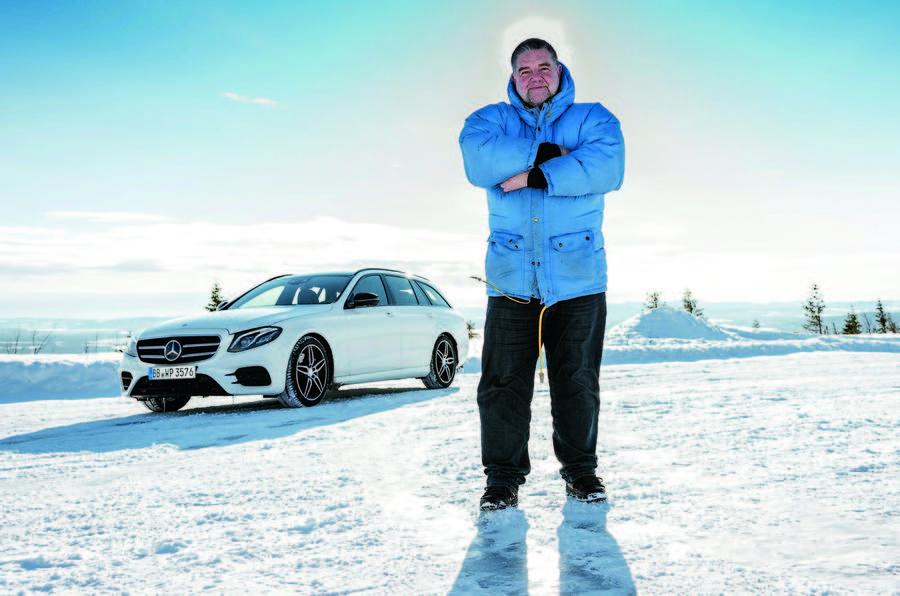This Mercedes engineer has saved over a million lives
Have you heard of Frank-Werner Mohn?

What do you think has been the biggest advance in road safety, after the seatbelt? One system with a solid claim to that title is stability control. In 1989 a Mercedes-Benz prototype, driven by company engineer Frank-Werner Mohn did not have such a system as it hadn’t been invented. Which is one reason he ended up in a snowy ditch in the north of Sweden. It took a long time to get a tow truck on the scene. He had time to think.
You or I might have been thinking of the excuses we’d need to explain the crash, involving a moose, a green light in the sky or a mysterious stranger. Herr Mohn had an even more radical idea as time passed and he got colder and colder.
When he got back to headquarters in Stuttgart he started to sketch out his idea with some engineers. They already had anti-lock brakes as ABS was a relatively recent invention. What if they added a computer to talk to the ABS that could rapidly measure the angle of the steering wheel and the slip angle of the car? You could then modulate the braking on each corner to stop the skid.
As it turns out Bosch, one of their suppliers, had already had a similar idea which would work when you jammed the brakes on in an emergency. But Mohn had sat in a cold ditch not due to an emergency but just loss of control. So the system would need to be on the whole time.
To work, the system needed a gyro sensor with quite fast processing speed. They found one – in a Scud missile. Two years after sitting chilly in a ditch, Mohn had a working system that went into production. The final green light came when they set up a test course on an icy lake. One company executive went off at the first corner with the system switched off, but was almost as fast as the professional test drivers with it switched on. It worked.
Naturally it was first added to the S-Class, in 1995, but only two years later there was that famous incident where a Swedish magazine managed to roll an A-Class during its ‘moose test’ (a test designed to simulate avoiding a moose, not having one driving). Stability control was soon fitted to every new car in the range. Then things took an unusual turn.
This was a brilliant safety technology, and Mercedes-Benz owned it because it was created by its engineers. They were building the system as fast as they could, but they couldn’t keep up with demand, and it was expensive too. So the board took the unusual decision to release the technology to other tech companies, knowing they would make it and sell it to competitor brands.
Not only that, but they didn’t sell this valuable technology, they gave it away. Mohn was not happy. ‘In my heart I was wounded because it was my invention and it was given away. But of course I now see the best decision was to make it available to everyone, to spread it out to all cars.’
It was the best decision, as within ten years of this decision the German authorities started to notice a fall in single-vehicle fatalities if the car was fitted with stability control. Some experts estimate the number of lives saved globally is already over a million, as the technology is compulsory in most markets, including the UK, even on the cheapest new cars.
Frank-Werner Mohn will retire this year after being with Mercedes-Benz for 35 years. If things had worked out differently he might have been a multi-millionaire from his invention, but he’s spent the last years working on autonomous technology that neither he nor we will see in service for some years to come.
But that technology uses the stability control he thought up and put into production, a system that has saved countless lives ever since, and which works quietly away on all new cars. We owe Frank-Werner Mohn and indeed Mercedes-Benz a great deal for this ground-breaking, life-saving technology.
Subscribe to Independent Premium to bookmark this article
Want to bookmark your favourite articles and stories to read or reference later? Start your Independent Premium subscription today.

Join our commenting forum
Join thought-provoking conversations, follow other Independent readers and see their replies